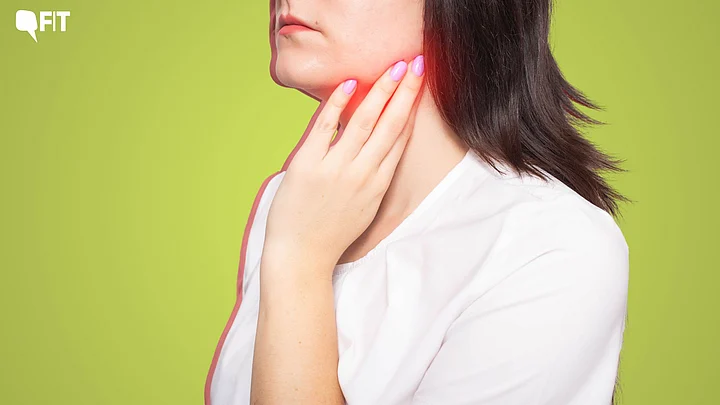An outbreak of mumps in Kerala has put the state health authorities on alert.
According to data from the Kerala health department, 190 cases of mumps were reported in the state in a single day on Sunday, 10 March. So far, 2,505 cases of the viral infection, have been reported this month already.
Why is Kerala suddenly seeing a surge in cases of mumps? Is it being detected in other parts of the country? Is the vaccine still effective? How can you protect yourself?
FIT answers your FAQs.
What is mumps?
Mumps is a viral infection caused by paramyxovirus. Typically, the incubation period for mumps is 16 to 18 days, which means it can take up to 18 days since being infected with the virus before the symptoms start showing up.
How contagious is it?
According to the US Centre for Disease Control and Prevention (US CDC), Mumps is contagious.
Like any aerosol-borne virus, mumps also spreads when someone with the virus sneezes, coughs, or talks.
The virus can also spread from droplets on surfaces. For instance, using objects used by an infected person like dirty tissues, straws, or drinking glasses.
Do only children get it?
No, although mumps is common among children, teens and adults can get it too.
"There is a slight chance that when adults get it, its a bit more severe and a bit more prolonged than in children," Dr Neha Rastogi Panda, Consultant - Infectious Disease, Fortis Memorial Research Institute, Gurugram, tells FIT.
what are some symptoms to look out for?
The most distinct symptom of mumps is swelling and tenderness on one side of the jaw.
Apart from this, the patient may also experience other flu-like symptoms, including:
Fever
Headache
Muscle aches
Tiredness
Loss of appetite
Swelling in the genitals
Some people may experience very mild to no symptoms as well.
When should you see a doctor?
In some rare cases, mumps can lead to severe illness as well.
"Usually less than 3 to 4 percent of mumps patients will have serious complications," says Dr Panda.
She goes on to say that in these cases, which typically include patients who are immunocompromised, it can cause aseptic meningitis, that is inflammation in the brain, and sometimes serious inflammation of the genital tract.
According to Dr Panda, consult a doctor in case of high fever, pain or worsening symptoms.
If there is a vaccine for mumps, why are we seeing a surge in cases?
Although the vaccine is effective, outbreaks are known to happen from time to time even in highly vaccinated populations.
According to the US CDC, one dose of the MMR (measles, mumps, and rubella) vaccine is 78 percent effective, and two doses are 88 percent effective against mumps.
However, according to experts, rise in cases of mumps in India can be linked to a drop in routine childhood immunisation, particularly after the pandemic.
The MMR vaccine is also not part of the Union government's universal immunisation programme, which restricts its accessibility and awareness.
When should you take the mumps vaccine?
The MMR vaccine is a two-dose vaccine recommended as part of routine childhood immunisation.
The first dose is given between 12 - 15 months of age, and the second dose between the ages of 4 - 6 years.
Because the vaccine protection wanes over time, one may not be immune to mumps all their life even if they have been vaccinated.
"There is some data now to show that a 'catch-up' or booster dose taken at adolescence (11 to 12 years) can help reinforce immunity against mumps, but this has not been fully clinically validated and so it hasn't been rolled out as a universal policy yet," explains Dr Panda.
I missed taking the MMR vaccine as a child. Can I still take it as an adult?
If you have missed the vaccine as a child, it is safe for adults to take the two doses of the vaccine. However, According to Dr Panda, unless you are immunocompromised or are grappling with other health issues, you've likely been exposed to the virus and developed some immunity through the years.
"For patients whose immunities are compromised, like patients who are on dialysis, HIV patients, cancer patient, we definately recommend taking the vaccine if you've not been immunised as a child. But for a generally healthy person, it isn't usually required."Dr Neha Rastogi Panda, Consultant, Infectious Disease, Fortis Memorial Research Institute, Gurugram
She adds, if you chose to, healthy adults can take the two doses of the vaccine a month apart.
How can you protect yourself from mumps?
As mumps spreads through aerosols, isolating the patient and their belongings like towels, bedding and linen can help contain the spread of the infection, much like in the case of COVID.
"You don't need to keep separate utensils for the patient, but make sure to wash them properly," says Dr Panda.
Keep up hand hygiene and wash your hands frequently
Use a mask when near an infected person
Avoid going to school or office for 5 days after the symptoms show up
(At The Quint, we question everything. Play an active role in shaping our journalism by becoming a member today.)
